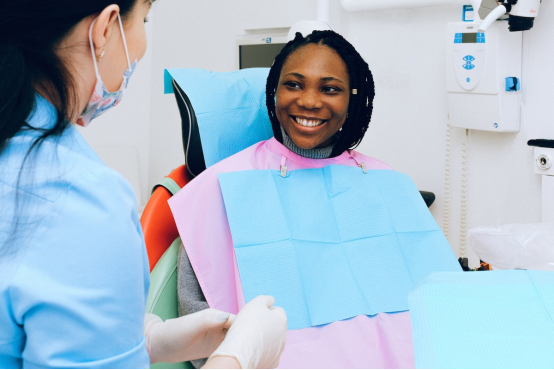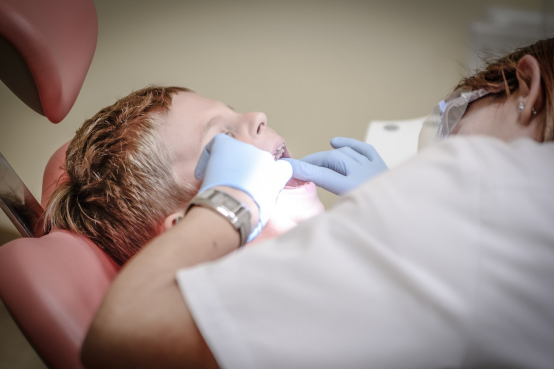Fitness and Wellness | By Maria Santos

Share
• Technology is revolutionizing dental care by providing more accurate diagnostic tools and better equipment, allowing for faster detection of potential issues.
• Treatment plans can be customized to the patient’s needs thanks to technology, leading to improved results and comfort levels.
• Technological advances in dentistry have made it possible to reduce patient anxiety and provide more precise treatments with less pain.
• Different types of technology used in dental care today include digital X-rays, intraoral cameras, 3D printing, orthodontic appliances, and laser dentistry.
Technology has been rapidly transforming the sphere of dental care. From revolutionary diagnostic tools to advanced equipment, technology is making it easier than ever for patients to maintain a healthy set of teeth.
CLOSETable of Contents
00001. The Benefits of Utilizing Technology in Dental Care
· Personalized Care
· Easier Treatment Plans
· Reduced Patient Anxiety
· Better Patient Engagement
00002. Different Types of Technology Used in Dental Care
· Digital X-Rays
· 3D Printing
· Orthodontics Appliances
· Laser Dentistry
The Benefits of Utilizing Technology in Dental Care
Using technology in dental care can have several great benefits for patients. For instance, many modern diagnostic tools can detect problems with teeth and gums faster and more accurately than ever before. Potential issues can be detected and treated sooner, leading to better long-term outcomes. Here are the other benefits of utilizing technology in dental care:
Personalized Care
Technology allows dentists to provide more personalized treatments. This means professionals can create plans specifically catered to an individual’s needs. This allows for more accurate treatments, better results, and a higher level of comfort for the patient.
Easier Treatment Plans
Treatment plans can be easily designed and changed with the help of technology. This allows dentists to make adjustments quickly, which makes it easier for patients to understand their treatment plan and follow it more effectively.
Reduced Patient Anxiety
According to studies, one of the reasons why patients are hesitant to visit the dentist is an intense feeling of anxiety. Fortunately, technology has allowed dentists to reduce patient anxiety by providing more precise treatments and a better overall experience. And since pain is often associated with dental treatments, technology has made it possible to reduce the amount of pain experienced during procedures.
Better Patient Engagement
Technology can also help engage and educate patients on their oral health and provide instructions for improving it. Digital tools such as apps, websites, and programs can improve patient engagement and make dental care more accessible. These can make it easier for dentists to discuss topics with patients more effectively.
Different Types of Technology Used in Dental Care
Dentistry has come a long way in utilizing technology to improve patient care. Here are some of the most common types of technology used today:
Digital X-Rays
One of the most important technological advancements in recent years has been the development of digital X-rays. Unlike traditional radiographs, digital X-rays provide a much more detailed view of a patient’s mouth, allowing dentists to make more precise diagnoses and develop effective treatment plans. They also require significantly less radiation exposure than traditional X-rays, making them safer for patients.
These small cameras are inserted into a patient’s mouth to get an up close and personal look at their teeth, gums, and other oral structures. Intraoral cameras provide much more detail than traditional X-rays.
They can help dentists detect problems early on before they become serious issues. Additionally, dentists can use intraoral cameras to show patients exactly what needs to be done to maintain proper oral health. This powerful visual aid helps educate patients about their condition.
3D Printing
3D printing allows dentists to create highly accurate models of a patient’s mouth to design restorations that fit perfectly with the patient’s teeth structure. This makes it easier for dentists to create custom crowns or bridges that offer superior comfort and aesthetics than traditional solutions such as preformed ones or bridges. Additionally, 3D printing allows dentists to produce these restorations onsite instead of waiting weeks or months from an outside lab—saving time and money while delivering better results faster!
Orthodontics Appliances
Modern technological advances have allowed dentists to create customized orthodontic appliances that fit perfectly with a patient’s mouth structure and promote healthy alignment. By using digital impressions, which are much more precise than traditional ones, dentists can design and fabricate braces or retainers that provide better results while still being comfortable to wear.








Post comments